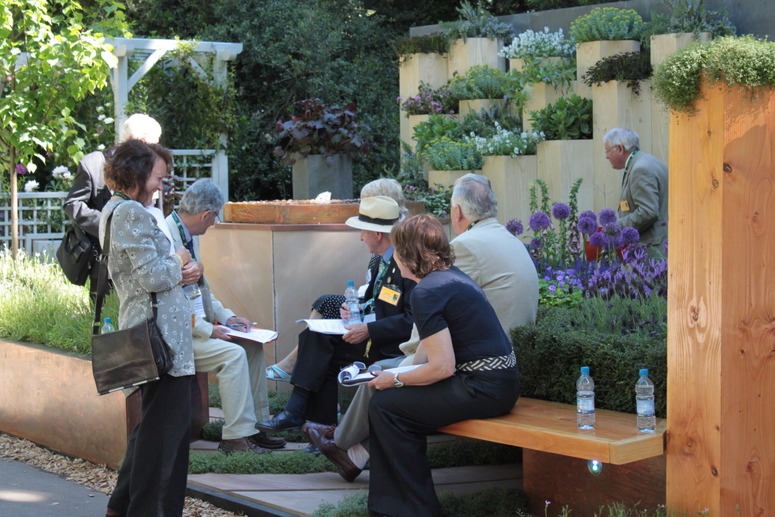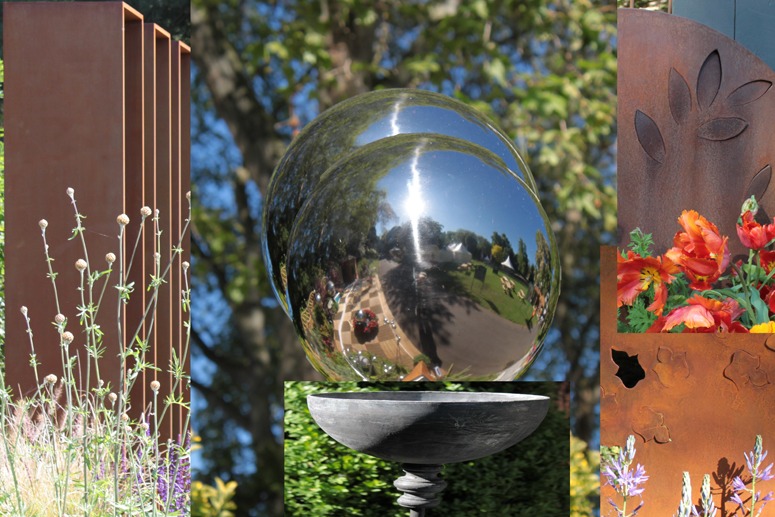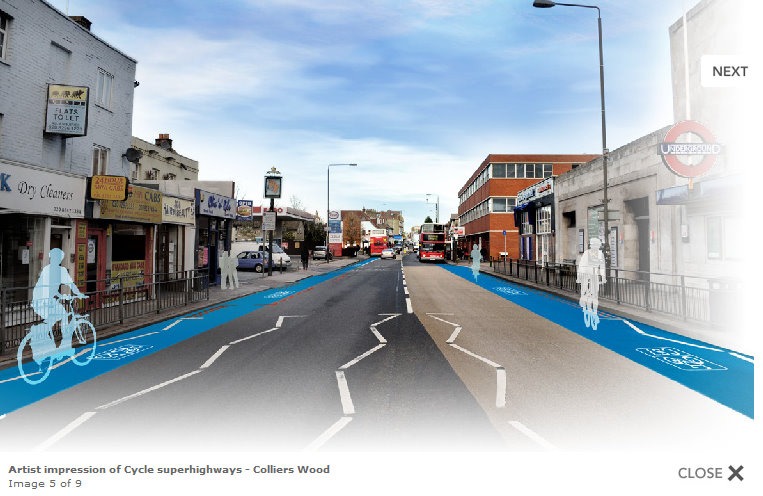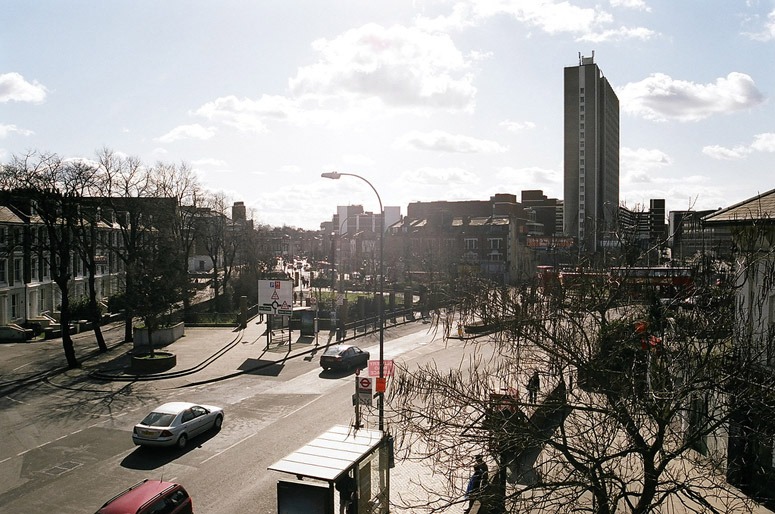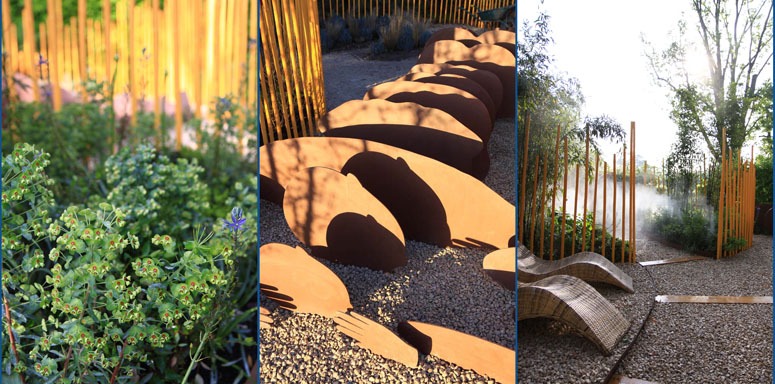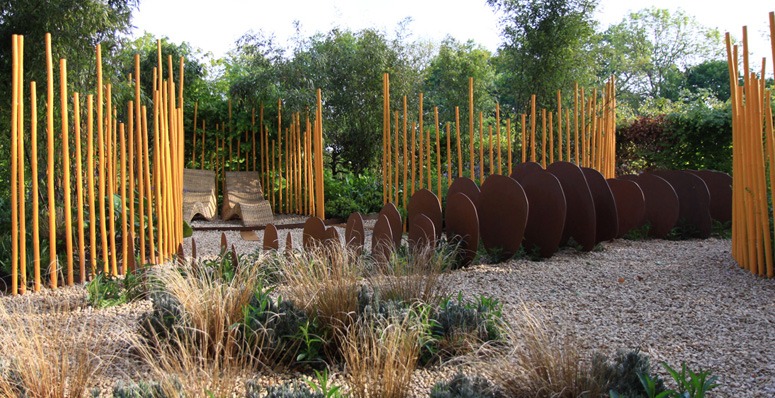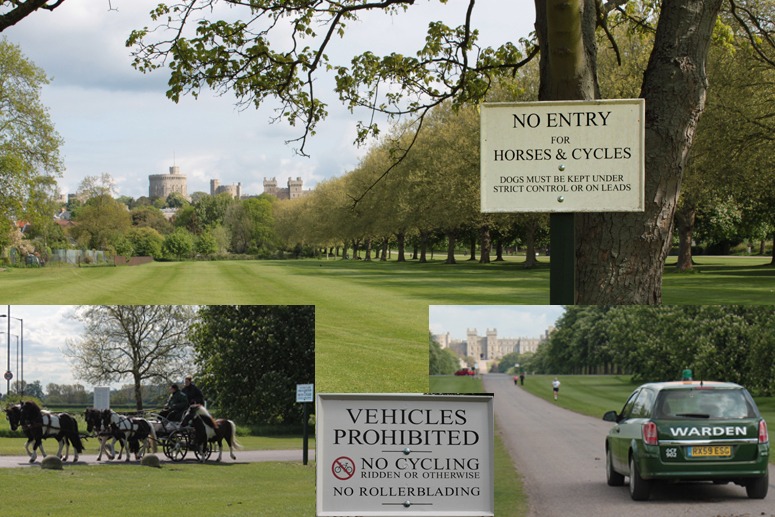
No Vehicles and No Entry for Horses and Cycles onto the Long Walk in Windsor Great Park
I re-visited Windsor Great Park on the day, in May 2010, that Britain got a Liberal-Tory government and tried to ride my bike along the 4.26 km Long Walk. A flunky dashed out and told me to stop it. I offered to push the bicycle. He said this was forbidden. ‘Why?’ I asked. ‘The Queen doesn’t like cyclists’, he told me. ‘I think I’ll become a republican’, I told him. ‘Me too’ he said. In the course of a long stroll up the Long Walk I noticed the above signs and was overtaken by many vehicles, including picturesque horse-drawn carriages, for paying guests, and a fleet of warden’s cars with no apparant purpose other than ridding the realm of pestilential cyclists. Those with money and power lord it over the poor plebs who pound their own pedals. ‘Twas ever thus’ you might think.
But there is hope for the future: our current Prime Minister (David Cameron) and the current the Mayor of London (Boris Johnson) are both cycle commuters – and it is hard to see Prince Charles as anything other than a postmodern liberal tory. Nick Clegg could buy a bike too. It’s a pity about the Queen but she does belong to another era and Windsor Castle remains the best symbol of what the best historian of French Gardens (Kenneth Woodbridge) saw as the Norman strand in British life. The Normans conquered England in 1066 and despite their origin in a tribal and pagan region (Scandinavia), what they brought to England was the centralist administration and palace civilization of West Asia (as modified by the Macedonians, the Romans, the Franks and the French). This may add up to a historical justification for banning cyclists from Windsor Great Park. But I hope Prince Charles removes the ban, when and if he acceeds to the British throne. It was the Norman Tendency which converted Anglo-Saxon-Viking England into the imperial power we know as Great Britain and it remains the case that more-recent immigrants think of themselves as ‘British Asians’, ‘Black British’ etc rather than ‘English Asians’, ‘Black English’ etc. ‘Civis Britanicus sum’ may be embedded in their psyches. Though also descended from immigrants, I feel more English than British – possibly because I do not like imperialism. Dunno.
Historians may view the UK’s 2010 election as a key event in the re-birth of the Liberal England. George Dangerfield said it had died (in a 1935 book on The Strange Death of Liberal England). Re-birth would please admirers of John Locke, John Russell, William Cobbett, William Gladstone and David Lloyd George. And it would please me. Liberalism is the grand theme of English politics – and of English garden design in the last 3 or 4 centuries. The best garden and landscape design has often had political themes. So it is very appropriate that English liberalism was reborn in a rose garden – despite the irony of roses being associated with Mary Gardens, Medieval Marianism and Catholic Toryism.
‘What passes for optimism is most often the effect of an intellectual error.’
Note The word ‘warden’ reached England in the early 13th century. It means ‘one who guards’ and derives from the Old Norman French wardein and from the Frankish warding, which derives from wardon ‘to watch or guard’. In about 1300 warden came to mean ‘governor of a prison’.

